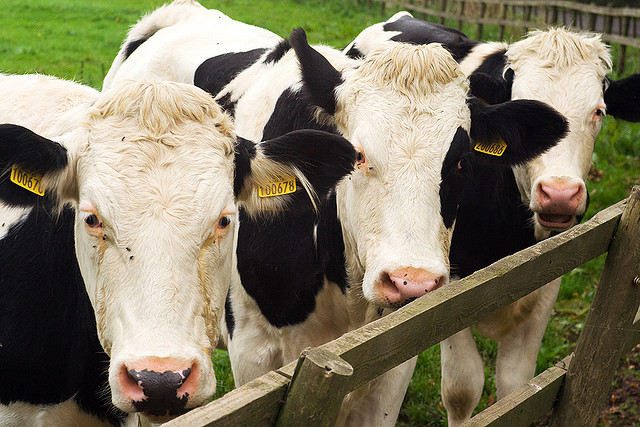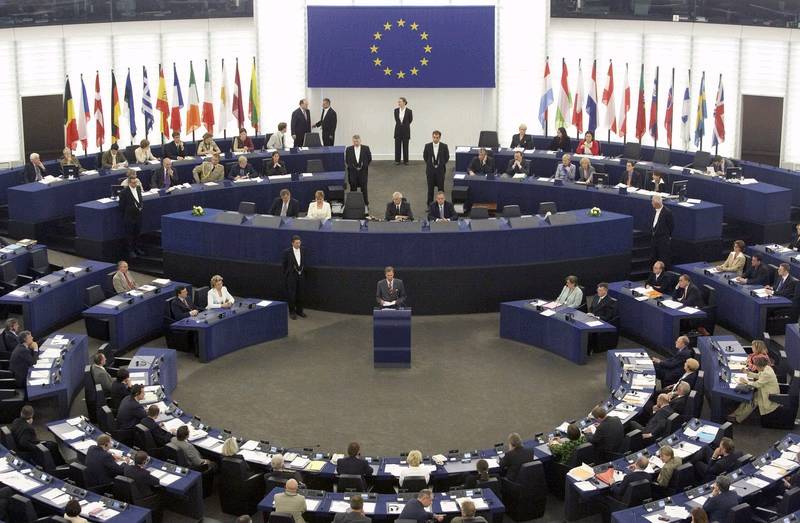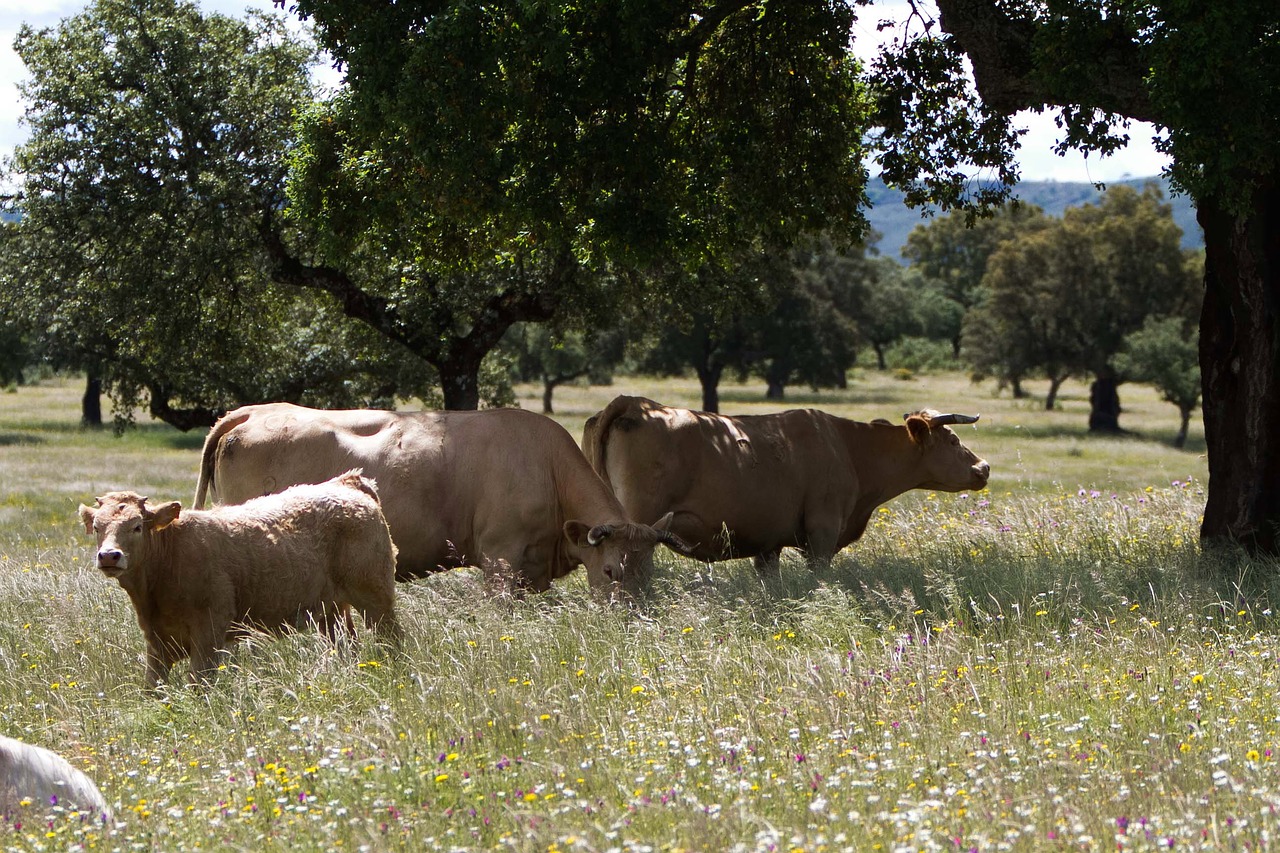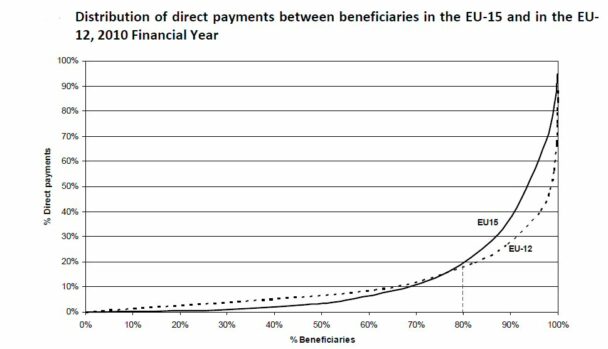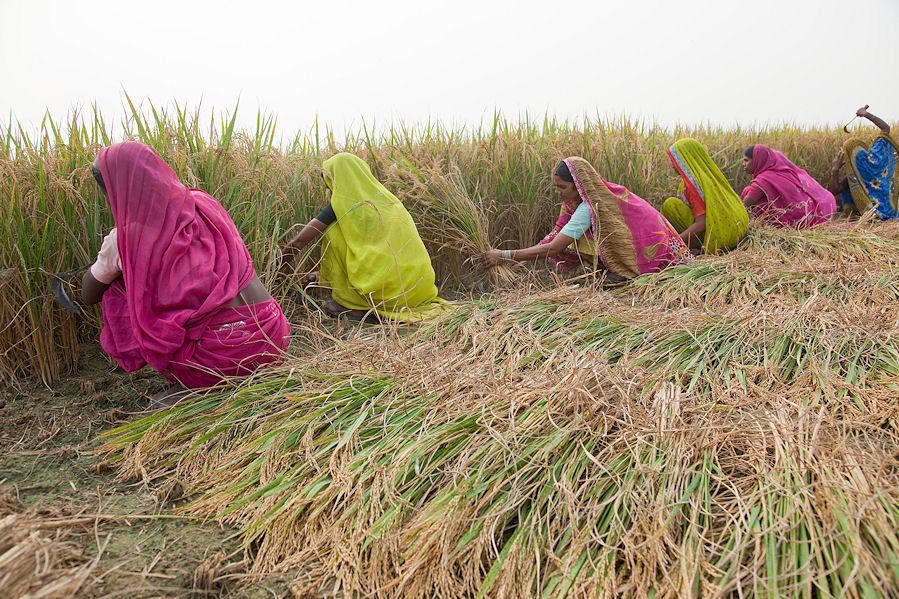One little-emphasised feature of the current negotiations on CAP reform is that the rules for eligibility for payments under the new basic payment scheme (and thus also the other proposed layers of Pillar 1 direct payments such as the green payment, young farmer’s payment, area of natural constraints payment and redistributive payment where these are adopted) are in a state of flux. New amendments and modifications continue to be introduced at successive stages of the negotiation process. This uncertainty is reflected in the market for Single Farm Payment (SFP) entitlements and the prices farmers are willing to pay for entitlements where they become available.… Read the rest
Impact of CAP subsidies on productivity
I recently had an exchange on Twitter with Martin Crowe, an Irish dairy farmer and agri-consultant, over the apparent stagnation in Irish agricultural output over the past 20 years (follow on @xAlan_Matthews and @martincrowe). I attributed this, in part, to the role that direct payments play in Irish farm incomes. I argued that “If 70% of your income is coming as a cheque in post there is less incentive to innovate to grow the remaining 30%” (direct payments make up around 70% of Irish farm income in an average year). Martin tweeted back that the “70% gives the security and confidence to try and improve the 30%”.… Read the rest
How MEPs voted on CAP reform
The website VoteWatch Europe monitors the voting of MEPs on each resolution and piece of legislation. It published the following commentary on the CAP reform voting earlier this month (thanks to Xavier Pavard @xpavard on Twitter for drawing attention to this source) which I reproduce here.
(Note: Right click on the images below and select Show picture to get clearer view of the graphics)
… Read the restCentre-right wins battle over CAP reform; net contributor country MEPs outvoted
MEPs voted on a package of four legislative proposals that make up the reform of the Common Agricultural Policy (CAP). The subject was hotly debated, as CAP currently accounts for close to 40% of the EU budget.
Evolution of the direct payments regulation
In January I prepared a spreadsheet setting out the amendments to the Commission’s proposed direct payments regulation which took account of the COMAGRI rapporteur’s amendments May 2012, the Council’s position as summarised in the Cyprus Presidency document December 2012 and the COMAGRI compromise amendments Jan 2013.
Some readers found this useful so I have now updated the spreadsheet to take account of the COMAGRI proposal for a negotiating mandate in February 2013 (that is, after COMAGRI voted on the compromise and other amendments), the mandate following the European Parliament plenary vote in March 2013, and the successive versions of the regulation prepared by the Irish Presidency for the March 2013 Agricultural Council meeting.… Read the rest
Implications of the new redistributive payment
Ever since direct payments were introduced into the CAP, their unequal distribution has attracted unfavourable attention. The Commission’s 1991 paper The Development and Future of the CAP criticised the distribution of price support, noting that “80% of the support provided by FEOGA is devoted to 20% of farms which account also for the greater part of the land used in agriculture”. Yet the proportions remain exactly the same in both the EU-15 and EU-12 today, according to the Commission’s latest figures for the claim year 2009 (financial year 2010) (see diagram).
Even for those who argue that the specific nature of farming justifies a permanent system of direct payments support, the unequal distribution of support is hard to justify.… Read the rest
Promoting innovation through the EIP Agricultural Productivity and Sustainability
Last week I attended a meeting of the High Level Steering Board of the European Innovation Partnership for Agricultural Productivity and Sustainability (EIP-A) representing the European Association for Agricultural Economists. The meeting was jointly organised by Dacian Ciolos, Commissioner for Agriculture and Rural Development, and Maire Geoghegan-Quinn, Commissioner for Research and Innovation.
It brought together 42 people representing member states, the farm and food sectors, NGOs, representatives from existing Joint Programming Initiatives in the food and agriculture area as well as scientific associations and the university sector. The purpose of the meeting was to provide input for drawing up the EIP Strategic Implementation Plan (SIP) and the agenda was organised around four questions relating to priorities, bottlenecks, mobilising farmers and delivery mechanisms and funding.… Read the rest
Implications of the European Council MFF agreement for the agricultural environment
This is a shortened version of a post which was first written for the Institute for International and European Affairs EnvironmentNexus blog
From the perspective of the agricultural environment, there are three elements in the European Council conclusions on the EU’s Multi-annual Financial Framework on 7-8 February which should be noted.
The first element is the general commitment that climate action objectives will represent at least 20% of EU spending in the period 2014-2020 and should be reflected in the appropriate instruments to ensure that they contribute to strengthening energy security and building a low-carbon, resource efficient and climate resilient economy.… Read the rest
Will the MFF be agreed this week?
Heads of State and Government meet Thursday and Friday 7 and 8 February in the first European Council meeting of 2013. A second attempt to reach agreement on a Multi-annual Financing Framework (MFF) for the 2014-2020 period is on the agenda. Prime Ministers and European Ministers have been criss-crossing Europe for the past few weeks to drum up understanding and support for their various national positions, with Merkel and Hollande meeting in Paris today Wednesday on the day before the summit begins.
Herman van Rompuy, the Council President, is playing his cards very close to his chest. Unlike prior to the earlier failed attempt to reach agreement in November last year, a third draft of the Council conclusions (HvR-III) will not be formally circulated before the meeting (see this post for commentary on HvR-I and this post for commentary on HvR-II).… Read the rest
The MFF numbers – where we stand
Later this week (7-8 February), the European Council will meet for a second time to try to agree the parameters for the EU’s Multi-annual Financial Framework (MFF) for the 2014-2020 period. The prospects for success remain uncertain; tomorrow I will review the main outstanding issues and the likely flashpoints when the Heads of State and Government meet.
The purpose of this post is to present the numbers as published in successive drafts of the MFF since the Commission’s original proposal in June 2011 and a comparison with the numbers in the 2007-2013 MFF. This provides the context to evaluate the blueprint which European Council President Herman van Rompuy will put before the leaders and any potential agreement.… Read the rest
The development interest in the CAP reform debate
Olivier De Schutter, the UN Special Rapporteur on the Right to Food, called last week for MEPs to take into account the impact on developing countries when voting on amendments to the draft CAP regulations post-2013 (see also here). Among other issues, he called on MEPs to support the views of the European Parliament’s Development Committee, which voted unanimously in favour of a mechanism to monitor the CAP’s development impacts (look for Amendment 4 inserting a new Article 110(a)). In the voting last week, COMAGRI MEPs declined to do this.
De Schutter had previously issued a report with some controversial recommendations on how this round of CAP reform could help to realise the right to food in developing countries.… Read the rest


